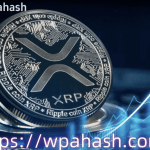10 Best Crypto Exchanges and Apps of 2025
Cryptocurrency trading has come a long way from its experimental beginnings. What was once the realm of early adopters has now become a mainstream investing category—one that millions of people access through exchanges and mobile apps every day.
But with hundreds of platforms vying for attention, how do you know which one to trust? Fees, security, regulatory standing, available coins, and even customer support can vary widely from one exchange to the next. And with new hacks, lawsuits, and market swings hitting headlines, the choice of where you trade matters more than ever.
To help you navigate, Finance Monthly analyzed dozens of leading platforms and highlighted the 10 best crypto exchanges and apps for 2025. From beginner-friendly apps like Coinbase and eToro to low-fee powerhouses like Kraken and Binance.US, this list breaks down the strengths, drawbacks, and features you need to know before opening an account.
Whether you’re just buying your first fraction of Bitcoin or actively staking dozens of altcoins, these are the platforms that combine reliability, ease of use, and strong reputations to give you the best shot at success in today’s crypto market.
10 Best Crypto Exchanges and Apps of 2025
Best Overall Crypto Exchange
Kraken ★★★★★ 5.0
Trading Fees: Maker Fee 0.25% / Taker Fee 0.40%*
*For trading under $10,000 within 30 days.
Tradable Coins: 400+
Minimum Deposit: Depends on currency
Editor's Take
Promotion: 2% deposit match on futures, up to $100; expires September 30, 2025
Kraken is one of the oldest U.S. crypto exchanges, founded in 2011. With a wide selection of coins and competitive fees, it remains a favorite for both beginners and advanced traders.
Why We Like It
Kraken offers 400+ coins, competitive maker-taker fees, and a clean trading platform. Advanced users can tap into Kraken Pro for charting, indicators, and margin trading.
What We Don’t Like
Unavailable in Maine, New York, or Washington. Staking isn’t supported in several U.S. states. A 2024 extortion attempt raised some security concerns, though customer assets weren’t impacted.
Who It’s Best For
Traders who want low fees, a trusted track record, and feature-rich tools.
Pros & Cons
- ✔ 400+ tradable coins
- ✔ Long-standing, reputable exchange
- ✖ Not available in some U.S. states
- ✖ Past security incident (no funds lost)
Best for Multi-Asset Trading
Uphold ★★★★☆ 4.7
Trading Fees: Flat fee depending on asset (0.2% for most stablecoins; 1.4%–1.6% for BTC & ETH)
Tradable Coins: 250+
Minimum Deposit: $10
Editor's Take
Uphold is one of the few exchanges with a flat fee structure. Beyond crypto, you can trade stocks and precious metals in a single account.
Why We Like It
250+ coins, staking for 19 assets, and video education resources make it appealing for users who want more than just crypto.
What We Don’t Like
No service for New York residents, and customer support is limited to email only.
Who It’s Best For
Investors who want a multi-asset trading platform with flat fees.
Pros & Cons
- ✔ 250+ tradable coins
- ✔ Flat-fee structure
- ✔ Staking rewards available
- ✖ Not available in New York
- ✖ Limited customer support
Best Mobile App
Crypto.com ★★★★☆ 4.6
Trading Fees: Maker Fee 0.25% / Taker Fee 0.50%*
*For $10,000 or less in trades within 30 days.
Tradable Coins: 400+
Minimum Deposit: None
Editor's Take
Promotion: Up to $500 in CRO
Crypto.com is one of the most recognizable names in crypto, with a sleek mobile app, hundreds of coins, and extras like staking and a Visa debit card.
Why We Like It
400+ supported currencies, intuitive design, and the ability to earn interest on holdings. CRO token holders get extra benefits.
What We Don’t Like
Not available in New York. Suffered a $34 million hack in 2022 despite strong security efforts.
Who It’s Best For
Crypto.com is best for mobile-first traders who want an all-in-one platform.
Pros & Cons
- ✔ Earn interest on assets
- ✔ 400+ currencies supported
- ✔ Visa card integration
- ✖ Past major hack
- ✖ Not available in New York
Best for U.S.-Wide Availability
Gemini ★★★☆☆ 3.9
Trading Fees: Maker Fee 0.20% / Taker Fee 0.40%*
*For trades under $10,000 within 30 days.
Tradable Coins: 70+
Minimum Deposit: Depends on currency
Editor's Take
Promotion: $10 in BTC
Gemini is one of the few exchanges available in all 50 states. It balances ease of use with advanced features through its ActiveTrader platform.
Why We Like It
Wide availability, strong compliance record, and an intuitive platform make Gemini an appealing option for U.S.-based traders.
What We Don’t Like
High fees compared to competitors, with added 1% convenience and 1.49% transaction fees on some orders.
Who It’s Best For
Investors who want statewide access and regulatory trust.
Pros & Cons
- ✔ Available in all 50 states
- ✔ Beginner- and pro-level platforms
- ✖ Complex and costly fee structure
- ✖ Limited coin selection (70+)
Best for Beginners
Coinbase Exchange ★★★☆☆ 3.7
Trading Fees: Maker Fee 0.40% / Taker Fee 0.60%*
*For $10,000 or less in trades within 30 days.
Tradable Coins: 290+
Minimum Deposit: Depends on currency
Editor's Take
Promotion: Up to $200 in crypto
Coinbase is a household name in crypto. With 290+ coins and a beginner-friendly interface, it’s a great starting point for new traders.
Why We Like It
User-friendly setup, recurring buy options, and staking rewards on over 130 assets make Coinbase attractive to beginners.
What We Don’t Like
Higher fees than competitors and several reported hacks in recent years raise concerns.
Who It’s Best For
Best for new investors seeking simplicity and a trusted brand.
Pros & Cons
- ✔ 290+ tradable coins
- ✔ Beginner- and advanced-trader platforms
- ✔ Staking and rewards programs
- ✖ Higher-than-average fees
- ✖ Past security incidents
Best for Staking Rewards
Binance.US ★★★☆☆ 3.7
Trading Fees: Maker Fee 0.10% / Taker Fee 0.10%*
*For regular users within a 30-day period. Zero-fee promotions available on select coins.
Tradable Coins: 160+
Minimum Deposit: $10
Editor's Take
Binance.US is known for its staking offerings, with more than 20 coins supported, making it a standout choice for yield-focused traders.
Why We Like It
Low trading fees, staking rewards, and a strong library of educational content help Binance.US stay competitive.
What We Don’t Like
Restricted in several states, with past regulatory scrutiny and security incidents affecting its global brand reputation.
Who It’s Best For
Best for traders looking to earn staking rewards with lower fees.
Pros & Cons
- ✔ 20+ staking options
- ✔ Low trading fees
- ✔ Educational resources available
- ✖ Not available in multiple states
- ✖ Past regulatory and security concerns
Best Traditional Brokerage for Crypto Trading
Interactive Brokers ★★★☆☆ 3.7
Trading Fees: Commissions of 0.12%–0.18% (with $1.75 minimum, capped at 1% of trade value)
Tradable Coins: 11
Minimum Deposit: None
Editor's Take
Interactive Brokers brings crypto into a professional-grade brokerage platform, making it attractive to traders who want to manage both traditional and digital assets in one place.
Why We Like It
IBKR offers a simple fee model and integrates crypto with stocks, ETFs, options, and more—great for diversified investors.
What We Don’t Like
Extremely limited coin selection (only 11), and no staking or reward options.
Who It’s Best For
Best for traditional investors who want occasional exposure to crypto.
Pros & Cons
- ✔ Simple fee structure
- ✔ Sophisticated trading tools
- ✔ Integration with traditional assets
- ✖ Only 11 supported coins
- ✖ No staking/reward features
Best for Global Access
Bitstamp (by Robinhood) ★★★☆☆ 3.5
Trading Fees: Maker Fee 0.30% / Taker Fee 0.40%*
*For trades less than $10,000 within 30 days.
Tradable Coins: 100+
Minimum Deposit: Depends on currency
Editor's Take
Bitstamp, one of the oldest exchanges, was acquired by Robinhood in 2025, bringing global licenses and infrastructure that appeal to institutional and retail traders alike.
Why We Like It
Global reach across EU, UK, Asia, and most U.S. states, plus a clean interface that works for beginners.
What We Don’t Like
Limited staking options (only Ethereum and Cardano), and customer support lacks live chat.
Who It’s Best For
Best for international traders wanting simple access to major coins.
Pros & Cons
- ✔ Available globally
- ✔ Backed by Robinhood
- ✔ Simple interface for beginners
- ✖ Staking only supports two coins
- ✖ No live chat support
Best for Security-Conscious Traders
BitFlyer ★★★☆☆ 3.1
Trading Fees: 0.10% for BTC/USD and ETH/USD
*Fees apply to trades under $50,000 within 30 days.
Tradable Coins: 9
Minimum Deposit: Depends on currency
Editor's Take
BitFlyer’s roots in Japan and licenses in the U.S. and EU give it a strong compliance-first reputation. Assets are stored in secure offline cold storage.
Why We Like It
Regulatory compliance, offline storage, and competitive fees on core pairs like BTC and ETH.
What We Don’t Like
Extremely limited coin selection (only 9) and unclear fee structures for smaller altcoins.
Who It’s Best For
Best for traders who value security over variety.
Pros & Cons
- ✔ Licensed in Japan, EU, and U.S.
- ✔ Strong offline storage protections
- ✔ Low BTC/ETH fees
- ✖ Only 9 supported coins
- ✖ No staking or advanced features
Best for Copy Trading
eToro ★★½☆☆ 2.8
Trading Fees: 1% per trade (plus bid-ask spread)
Tradable Coins: 19 in the U.S. (100+ globally)
Minimum Deposit: $50
Editor's Take
Promotion: $10 in cash or crypto
eToro is a beginner-friendly platform with a unique social trading feature that lets you copy the trades of experienced investors.
Why We Like It
Beginner-focused design, access to other assets (stocks, ETFs), and the ability to mirror professional traders.
What We Don’t Like
High spreads, limited staking options, and restricted availability in some U.S. states.
Who It’s Best For
Best for casual investors exploring crypto and stock markets together.
Pros & Cons
- ✔ Easy-to-use interface
- ✔ Copy trading/social features
- ✔ Access to stocks and ETFs
- ✖ High spread fees
- ✖ Only 19 coins available in the U.S.
Most Popular is calculated from the number of times each affiliate product was selected by Finance Monthly users over a six month time period.
| Crypto Exchange | Star Rating | Trading Fees | Tradable Coins | Learn More |
|---|---|---|---|---|
| Kraken | ★★★★★ | Maker Fee 0.25% / Taker Fee 0.40% (For trading under $10,000 within 30 days.) |
400+ | On Kraken's Website |
| Uphold | ★★★★☆ | Flat fee depending on asset (0.2% stablecoins; 1.4%-1.6% BTC/ETH) | 250+ | On Uphold's Website |
| Crypto.com | ★★★★☆ | Maker Fee 0.25% / Taker Fee 0.50% (For $10,000 or less in trades within 30 days.) |
400+ | On Crypto.com's Website |
| Gemini | ★★★½☆ | Maker Fee 0.20% / Taker Fee 0.40% (For trades less than $10,000 within 30 days.) |
70+ | On Gemini's Website |
| Coinbase Exchange | ★★★½☆ | Maker Fee 0.40% / Taker Fee 0.60% (For $10,000 or less in trades within 30 days.) |
290+ | On Coinbase's Website |
| Binance.US | ★★★½☆ | Maker Fee 0.10% / Taker Fee 0.10% (Standard 30-day period) |
160+ | On Binance.US Website |
| Interactive Brokers | ★★★½☆ | Commissions of 0.12% to 0.18% ($1.75 minimum, capped at 1%) |
11 | On Interactive Brokers Website |
| Bitstamp (by Robinhood) | ★★★☆☆ | Maker Fee 0.30% / Taker Fee 0.40% (For trades less than $10,000 within 30 days.) |
100+ | On Bitstamp's Website |
| BitFlyer | ★★½☆☆ | 0.10% for BTC/USD and ETH/USD (As low as 0.10% under $50,000 within 30 days.) |
9 | On BitFlyer's Website |
| eToro | ★★½☆☆ | 1% fee (Excludes bid-ask spread) |
19 (100+ globally) | On eToro's Website |
Methodology
Our editorial team conducted an in-depth analysis of 20 of the most prominent cryptocurrency exchanges in 2025. We reviewed nearly 40 different data points for each platform, including fees, tradable assets, security history, and user experience. Where possible, we verified information directly with the companies themselves to ensure accuracy and transparency.
The exchanges that ranked highest in our review consistently delivered on cost-effectiveness, breadth of features, and customer trust. To balance our scoring, we weighted each category based on its importance to both new and experienced crypto investors. Below is the breakdown of how we applied those weights:
| Decision Factor | Scoring Weight | Details |
|---|---|---|
| Available Coins | 20% | Total number of cryptocurrencies available to trade. |
| Trading Fees | 15% | Exchange fee structures, including maker-taker costs. |
| Withdrawal & Other Fees | 7.5% | Costs for withdrawals and additional transaction fees. |
| Additional Trading Features | 10% | Support for advanced tools like limit/stop orders, futures, and margin. |
| Education | 6% | Quality of learning resources, including guides and tutorials. |
| Security & Storage | 15% | Past breaches, two-factor authentication, insurance, and custody options. |
| Staking | 5% | Availability of staking in the U.S. and variety of supported assets. |
| USD Deposits & Withdrawals | 2% | Ability to fund and withdraw directly in U.S. dollars. |
| Margin Trading | 2.5% | Whether the platform supports crypto margin trading. |
| Consumer Sentiment Index (CSI) | 17% | Customer satisfaction ratings across service, usability, and reliability. |
How Do Cryptocurrency Exchanges Work?
At their core, crypto exchanges function much like online brokerages. They provide platforms where investors can place buy, sell, or trade orders on digital currencies. These orders are either matched against other users (in centralized exchanges) or executed directly on blockchain networks (in decentralized exchanges).
- Centralized Exchanges (CEXs): Operated by companies that manage order matching, custody, and compliance on behalf of users.
- Decentralized Exchanges (DEXs): Peer-to-peer marketplaces that allow direct asset swaps without an intermediary.
How to Choose the Right Crypto Exchange
Selecting an exchange depends on your goals, level of experience, and tolerance for risk. For beginners, simplicity and support may be most important. Advanced traders often prioritize low fees and advanced order types. Key considerations include:
- Features & Usability: Trading tools, staking options, and platform design.
- Security: History of breaches, two-factor authentication, and custody policies.
- Supported Coins: Range of digital assets available to trade.
- Fees: Maker-taker fees, withdrawal costs, and spreads.
- Availability: State or country restrictions on access and features.
- Customer Service: Responsiveness, support channels, and availability.
- Customer Reviews: Real-world feedback on reliability and satisfaction.
Opening a Crypto Exchange Account
Most exchanges require account registration via their website or mobile app. In line with U.S. regulations, Know Your Customer (KYC) checks typically involve submitting personal details such as:
- Name
- Date of birth
- Mailing address
- Social Security number
You may also have to verify your identity by submitting a photo or scan of a government-issued ID.
Frequently Asked Questions About Crypto Exchanges
What are the largest crypto exchanges?
The largest cryptocurrency exchanges are usually ranked by their daily trading volume, though rankings can shift with market conditions. As of 2025, the biggest players include:
-
Binance – Dominates global markets and consistently ranks as the highest-volume exchange.
-
Coinbase – A major U.S.-based exchange with a simple, beginner-friendly platform.
-
Kraken – A veteran exchange known for its security and wide range of supported assets.
-
Bybit – Especially popular for derivatives and margin trading.
It’s worth noting that while centralized exchanges (CEXs) like these account for most trading volume, decentralized exchanges (DEXs) such as Uniswap and PancakeSwap are increasingly important to the crypto ecosystem.
How much money do you need to buy crypto?
You don’t need thousands of dollars to get started. Most exchanges let you buy cryptocurrency with as little as $1 by purchasing fractional amounts of coins. For example, you don’t need to buy an entire Bitcoin—you can start with a fraction.
That said, be mindful of transaction fees, which can eat into very small purchases and make them less cost-effective.
How do cryptocurrency exchanges make money?
Exchanges use several revenue streams, including:
-
Trading fees – Small percentages charged on each buy/sell order.
-
Listing fees – Projects often pay exchanges to list their tokens.
-
Withdrawal fees – Applied when moving funds out to a wallet or bank.
-
Staking services – Exchanges keep a cut of staking rewards.
-
Lending and borrowing – Acting as intermediaries for loans, charging interest or fees.
-
Derivatives and margin trading – Fees and interest from leveraged products.
What are maker and taker fees?
This common fee model depends on whether your trade adds or removes liquidity from the exchange’s order book:
-
Maker fees – Charged when you place an order that isn’t immediately filled (adds liquidity). Makers often pay lower fees, and some exchanges even offer rebates.
-
Taker fees – Charged when your order is filled instantly against existing liquidity (removes liquidity). Takers usually pay higher fees since they value speed and execution certainty.














